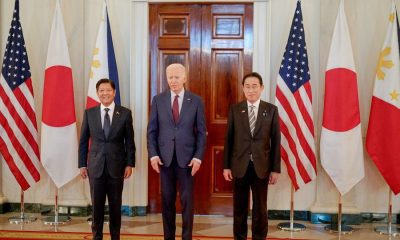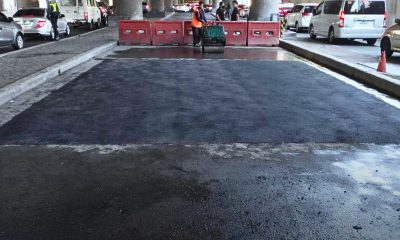Immigration
U.S. economy lost $100B due to Trump immigration ban: Report

Nonetheless, the study underscores the importance of immigration to the U.S. economy. (Pexels photo)
The Brookings Institution estimates the American economy lost $100 billion following Trump’s June 2020 Executive Order on immigration.
Restricting immigration has proven costly to the U.S. economy, according to a new report.
On June 22, 2020, American President Donald Trump signed an Executive Order to limit the number of employment-based visas the U.S. would issue for the rest of 2020. This includes new employment-based visas under the H-1B, H-2B, J, and L categories. The purpose of this Executive Order, according to the Trump administration, is to protect American workers during the coronavirus pandemic.
In a new study, the Brookings Institution, which is a leading U.S. research institute, estimates this Executive Order has cost the U.S. economy $100 billion. Brookings estimates the order has resulted in 200,000 fewer foreign workers and their dependents being able to enter the U.S. this year.
When comparing the valuations of Fortune 500 companies before and after the announcement, Brookings found a $100 billion decline in the market valuation of the companies following the Executive Order.
One thing to keep in mind, however, is that market valuations of Fortune 500 companies have been volatile throughout the COVID-19 pandemic. Moreover, the fall in market valuations does not necessarily mean that $100 billion was “lost”, since the market valuation of the Fortune 500 will likely recover following the pandemic.
Nonetheless, the study underscores the importance of immigration to the U.S. economy. Similarly, immigration is of significant importance to Canada’s economy, which is why Canada continues to target over 340,000 new permanent residents per year.
Canada’s open immigration system and economic and social similarities has resulted in more U.S. residents immigrating to Canada in recent years.
How U.S. residents and citizens can immigrate to Canada.
Canada has over 100 different merit-based immigration streams for those who want to obtain permanent residence as skilled workers from the U.S.
Immigration candidates are assessed on their age, education, English skills, work experience, family ties in Canada, and other criteria such as whether they have worked and/or studied in Canada, and whether they have pre-arranged employment. You do not need a job offer however to succeed under Canada’s immigration system.
U.S. residents and citizens often look to immigrate as skilled workers through Express Entry.
Express Entry is Canada’s main application management system for skilled workers.
Every two weeks, Immigration, Refugees and Citizenship Canada (IRCC) holds Express Entry draws.
The highest scoring candidates receive invitations to apply for permanent residence.
After you submit your permanent residence application, IRCC aims to process your application and confer permanent residence status on you within six months or less.
After Express Entry, the second best way to immigrate from the U.S. as a skilled worker is through the Provincial Nominee Program (PNP).
Almost all of Canada’s provinces and territories operate the PNP to nominate immigrants who can meet their local labour market needs. You can apply directly to a province or territory’s PNP. If you obtain a nomination certificate, you can go ahead and submit a permanent residence application to IRCC.
If you are eligible for Express Entry, your best option is to submit an Express Entry profile. In addition to being considered by IRCC, provinces and territories can review your profile and issue you with an invitation to apply to their PNP. You can then use the nomination certificate you obtained to get an extra 600 points under Express Entry which essentially guarantees you will be successful through Express Entry.
Among Canada’s 100 skilled worker immigration options include pathways through Quebec’s immigration system and pathways for business immigrants such as self-employed persons.
Work permit options for U.S. residents and citizens
Work permits in Canada fall under two categories.
Some work permits require a Labour Market Impact Assessment (LMIA).
Canada uses the LMIA to determine how foreign workers may impact the Canadian labour market. Some jobs that require an LMIA mandate that Canadian employers submit an LMIA application to the Canadian government. If the government agrees the hiring of the foreign worker will not hurt Canadian workers, your LMIA application will be approved.
Most foreign workers do not need do not require an LMIA. For instance, U.S. citizens may be eligible to work in Canada without needing an LMIA if their job in Canada falls under the provisions of the United States-Canada-Mexico-Agreement (USMCA). This agreement is called “CUSMA” in Canada and used to go by “NAFTA”.
Another popular option since 2017 for U.S. residents and citizens alike is Canada’s Global Talent Stream. The GTS gives priority processing to tech talent who wish to enter Canada. Although an LMIA is required, it typically takes the Canadian government about one month to review applications.





















